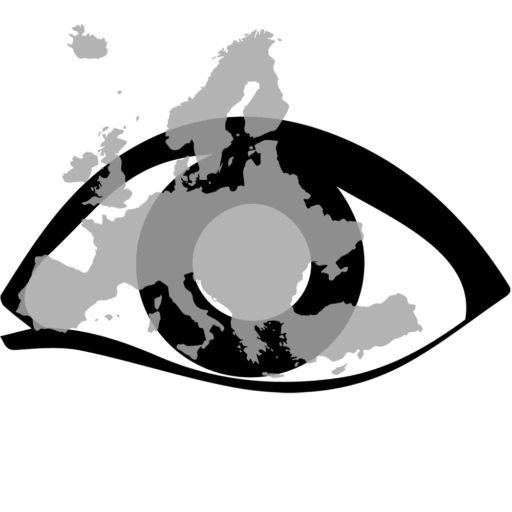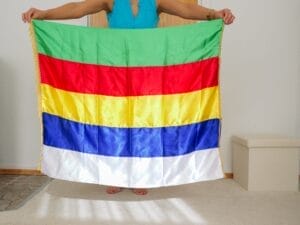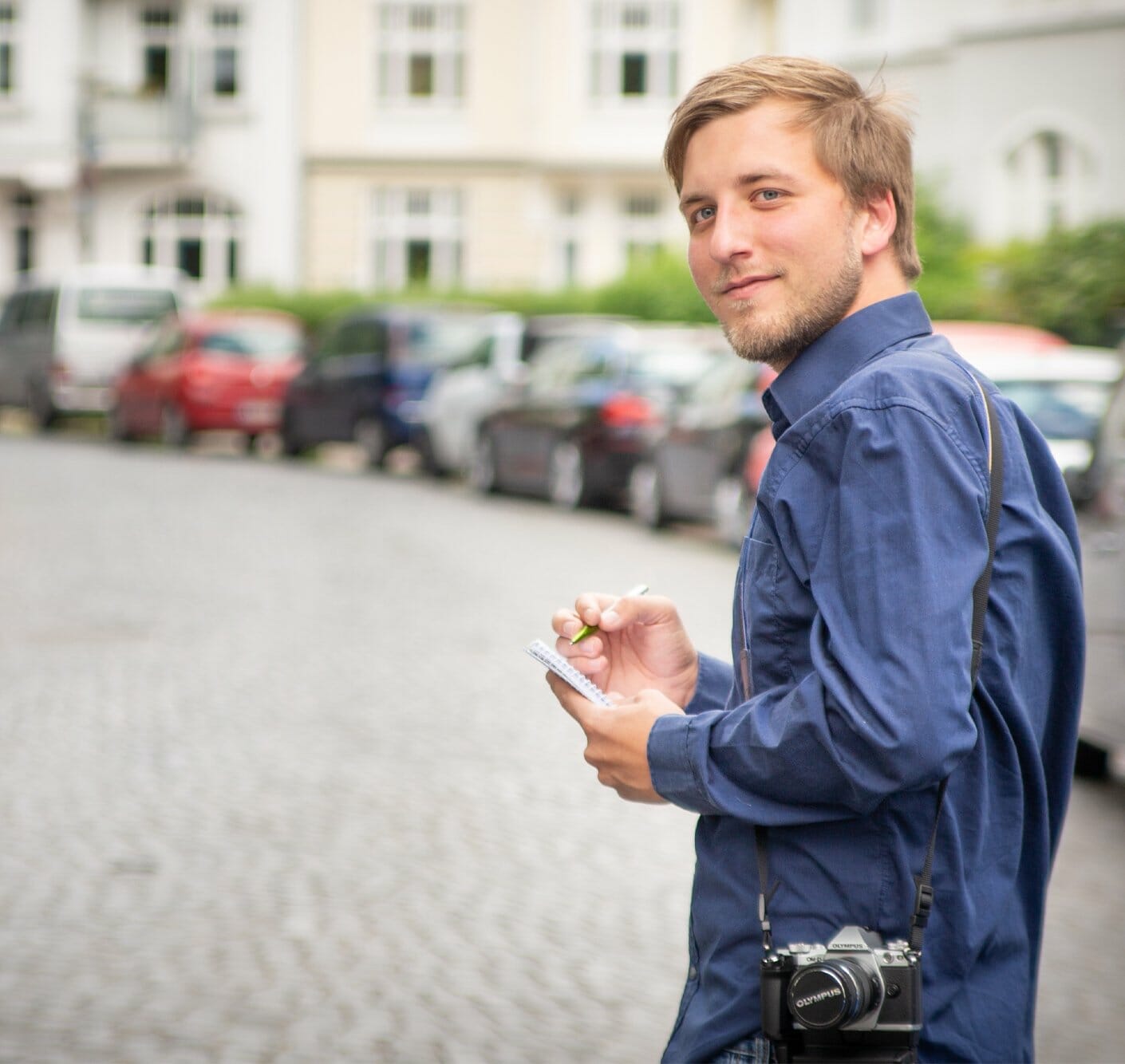as-Suwaida under siege: “We can’t survive here”
Following the announced ceasefire, the conflict in Syria’s as-Suwaida has fallen out of sight. In contrast, Druze speak of a siege by government militias. A visit to two families in Bremen.
His passport probably saved his life. Until the beginning of August, Tarek1In orderto avoid being identified as a Druze in public, all interview partners only want to be called by their first names. locked up in as-Suwaida. Besieged by militias of the Syrian rulers, as he calls them; he does not want to grant them the status of an army.
Back in Bremen from what was supposed to be a family visit, the impressions of the past few weeks are still deep-seated. “The militias attacked with tanks and rockets,” he says in an interview with On the Ground, still visibly shaken. It was only thanks to his passport that he was able to pass all the checkpoints 60 kilometers to Damascus and then travel to his new home via Beirut in Lebanon; he has had German citizenship for several years.
Syrian army allegedly executed numerous Druze civilians
Since the spring, there has been an increasing number of riots, which have particularly affected the Druze minority in Syria. Many of them live in as-Suwaida, including Tarek’s relatives, whom he wanted to visit for a wedding. Just a few days after his arrival in as-Suwaida, a conflict between Druze and Bedouin militias escalated, as reported by SPIEGEL and others. Earlier cases of murder are also said to be attributable to deep-fake videos in which a high-ranking Druze apparently discredits the Prophet Mohamed.
However, since the Syrian Ministry of Defense and Interior first officially intervened for a ceasefire between the Druze and Bedouin, the government forces are now sealing off the region themselves. Druze like Tarek and organizations like the Syrian Observatory for Human Rights (SOHR) accuse the regime’s militias of committing further murders and massacres. More than 1,000 Druze are reported to have been murdered. Recently, the Druze community, which counts 55 families in Bremen according to members, was horrified by a video from a hospital in as-Suwaida: government troops are literally executing civilians. Similar scenes have been circulating online for weeks, although not every video can be verified.
The fear reaches as far as Germany
Together with Tarek, On The Ground met another Druze family in Bremen who also have relatives in as-Suwaida. None of them want to be named by their full names because they fear problems. “We no longer dare to shop in Syrian stores,” says Shada. The fear of being attacked by supporters of the new regime in Syria is too big; many false reports about the conflict are circulating in the Arab media. There have already been attacks on Druze at demonstrations in Germany. She now gives her daughter Rita a clear guideline: “Don’t tell the Arabs your religion!”
Everyone finds it difficult to find a structure in the conversation. “I’m under a lot of stress and have a headache,” apologizes Tarek. Shada agrees: “These weeks really aren’t easy for us. We’re stressed and can’t sleep.” She is constantly trying to stay in touch with her mother, sister and friends. However, it quickly becomes clear that they believe the prevailing reports in Germany about a conflict between the Druze and the Bedouin are too short-sighted.
Fighting despite ceasefire
The group repeatedly describes individual cases of murder in detail, especially at the hands of government militias, and reports on shortages of food, water and medicine as well as the lack of electricity in their old home. Of looting, kidnappings, executions and attacks on convoys. “It was a catastrophe for us,” says Tarek about the time he spent in the region. Families fled from one village to the next, with just the clothes on their backs; some of them ended up in the mountains in the east of the region. “We are afraid for the city and the future of our children,” says Shadi.
Shadi’s niece Farah also confirms the catastrophic situation during a brief phone call when the internet connection is stable enough. “We can’t survive the situation here,” she says in view of the collapsed infrastructure and services of general interest. More than 32 villages have been burnt down, and there is still fierce fighting, particularly on the provincial border with Damascus, as of the beginning of August. It is currently impossible for the student to attend university in the capital. “We are suffering under an illegal siege. I can’t even reach my family,” she sends as a voice message.
From one dictatorship to the next
The Druze from Bremen, who are watching the events from afar, largely powerless, are not only desperate but also incomprehensible about the escalation. “We have all lived together in peace,” says Tarek, outlining the region’s 1000-year history. Whether Druze, Kurds, Christians, Alevis or Ismailis as minority groups in as-Suweida: “We didn’t know division.” This is why the Druze rebelled against the Assad dictatorship, supported other rebel groups and provided humanitarian aid in the country – propaganda is now accusing the community of collaboration.
Hopes for a better future after the fall of the Assad dictatorship have now fizzled out. Tarek speaks of an extremist regime under Ahmed al-Sharaa, whom he continues to refer to by his former combat name al-Jolani. “He is like the Taliban,” is Tarek’s assessment of the Syrian transitional government. The new regime is pursuing an Islamist ideology like the one in Afghanistan. Minorities are not welcome, women already have to hide under hijabs. “We had a secular system in Suwaida. Our life was just like in Germany,” says Shada, describing her old home. Women also lived largely on an equal footing: “Faith didn’t matter. What was important was humanity.” This is precisely what is a thorn in the side of the new extremists in Damascus. “First Alevis were attacked, then Christians and Druze. The Kurds are next,” Rita translates for the group.
Ambivalent role of Israel
Israel, whose government is itself coming under increasing international criticism and prosecution for the current attack on the Gaza Strip, has an ambivalent role to play here. “Without Israel, the Druze are finished,” says Tarek, referring to the military intervention. However, he does not speak for the entire group here. Shadi sees more self-interest than benevolence: “They’re not doing this because they want to protect us. They have interests and want to protect their border from Islamists.”
The Bremen-based Druze therefore hope that the international community, including Germany, will increase the pressure on the Syrian regime and ensure humanitarian supplies. “The German government must know that this dictator is one of ISIS,” says Tarek about al-Sharaa and his ideology, which he thinks is based on the extremist ideology of the Islamic State terrorist organization. He has changed his costume, but remains a criminal. Syria has gone from one dictatorship to the next, is the devastating conclusion.
Footnotes
- 1In orderto avoid being identified as a Druze in public, all interview partners only want to be called by their first names.
Post published on August 13, 2025
Last edited on August 13, 2025
[mc4wp_form id=239488]



Leave a Reply
You must be logged in to post a comment.